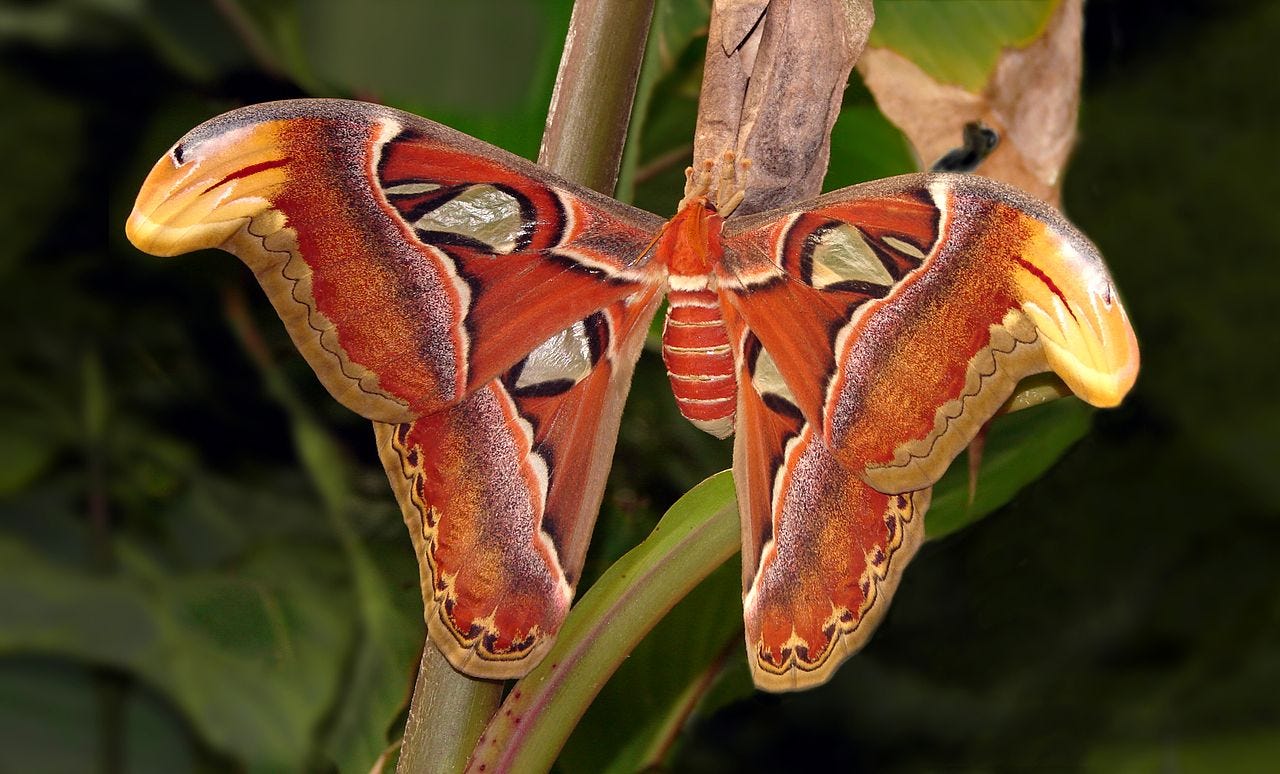Intermediaries

Interconnect—such an important theme of mine that I named this newsletter The Interconnect. The More Than Human Rights Project (Moth) is “an interdisciplinary initiative advancing rights and well-being for humans, non-humans, and the web of life that sustains us all.” The project is based at @nyulaw. I learned about it this week from writer Robert Macfarlane, a contributor to the project.
Today, I’m writing not so much about Moth in particular…but what it has opened me to as I edged into their website and followed links to various chapters of their new (free) book More Than Human Rights: An Ecology of Law, Thought and Narrative for Earthly Flourishing…it has been an experience like connecting with old friends after many moons have passed and catching up to what they are doing/how they are being in the world now. And it’s been an experience of encountering a web of people asking deep questions about well-being, the more-than-human, and interconnection.
Revisiting Robert Macfarlane through the lens of Moth and his contributions there has been a gift. Macfarlane created the extraordinary book The Lost Words with artist Jackie Morris.
I’ve written about The Lost Words previously…I encourage you to take a moment to read the post The current frequency of words in daily language of children from March, 2019. You’ll find a link to download the resource, Explorer’s Guide to The Lost Words, written by Eva John, “intended especially (but not only) for teachers and educators.”
Here is an excerpt from the first page of The Lost Words:
Once upon a time, words began to vanish from the language of children. They disappeared so quietly that at first no one noticed – fading away like water on stone. The words were those that children used to describe the natural world around them: acorn, adder, bluebell, bramble, conker – gone! Fern, heather, kingfisher, otter, raven, willow, wren . . . all of them gone! The words were becoming lost: no longer vivid in children’s voices, no longer alive in their stories.
I also found myself remembering my appreciation of David Abram (author of The Spell of the Sensuous: Language and Perception in a More-Than-Human World and Becoming Animal: An Earthly Cosmology)—he contributes the final chapter to the Moth book— “On the Origin of the Phrase ‘More-Than-Human.’” Macfarlane contributes the chapter “Journey to the Cedar Wood.”
Intermediaries…a word that emerged from a lovely conversation I discovered with David Abram and Merlin Sheldrake, biologist and author of Entangled Life: How Fungi Make Our Worlds, Change Our Minds, and Shape Our Futures (a New York Times bestseller). I have wanted to know Merlin Sheldrake and his work better and this conversation is a beautiful way in to a new acquaintance. Abrams describes Sheldrake as an intermediary. Abram and Sheldrake contribute chapter 8 to the book—”Honoring the Wild Proliferation of Earthly Perspectives: A Conversation.”
In the video conversation linked below, Sheldrake asks Abram the question:
I’m wondering where this interplay of quality and quantity [within the ecological sciences] might provide new fruitful realms of inquiry and I wonder what your thoughts might be about how we can take this forward in a way that might benefit both scientist and artists and magicians [Abrams, in addition to being writer, cultural ecologist and philosopher, is a sleight-of-hand magician] and thinkers of all sorts?
Here’s a short excerpt from Abram’s much longer response:
…suddenly I begin to find myself inside of the world I'm trying to study and no longer quite so able to manipulate it and look upon it from outside its frame and that, it seems to me, begins to move us into a more participatory science, a maturation of the sciences where one is deploying one's quantitative and measuring tools and skills, not to figure out how the world works as if from outside, but rather to learn how we can live in better relation with the world—that is employing our instruments and our experimental methods to learn not just how does this humpback work, what are its mechanisms, how does it tick, but rather I'm studying the humpback to learn how can humans and humpbacks live in some kind of proximity to one another and both flourish…
I’ve been writing a lot lately…somewhat ironically, I’ve been writing about reading…specifically, about the science of reading. When I need to refresh myself while I write too long at my 3-screen holodeck, I’ll often turn to one of the many wildlife photographers I follow on Instagram (like Daniel Dietrich), or to the daily videos of elephants rescued and nurtured back into the wild by the team at the Sheldrick Trust. Sometimes I’ll bring up the Sapsucker Woods Pond Cam hosted by Cornell Lab. These are just a few of my trusted intermediaries. They bring me into proximity with the more-than-human, widening my heart and mind.
Gratitude to Robert MacFarlane for sharing the Moth Project. I look forward to exploring with these thoughtful folks how to “live in better relation with the world.”
Be well. Thank you for your curiosity and making time to read The Interconnect. Welcome to the new readers this week. I’m glad you’ve found your way here and I hope you stay a while. Please consider sharing this post with family, friends, teachers, and/or colleagues who might appreciate it and put it to work.

Claudia consistently points us to what matters and what is often lost in the clutter of social media posts. When she first brought Robert Macfarlane's, Lost Words to my attention, I purchased it for myself . .I too recommend it . . .Thank you once more Claudia for your encouragement that we (as humans) are not living alone on this precious planet and how we are and interdependent species.